
A community initiative that unites educators, community partners, and families to improve children’s reading from birth to third grade.
Convener • Catalyst • Advocate • Advisor


A community initiative that unites educators, community partners, and families to improve children’s reading from birth to third grade.
Convener • Catalyst • Advocate • Advisor
One of the many wonderful attributes of the Charlotte-Mecklenburg community is the dedication of so many people to helping children learn to read. Two of the four goals in Charlotte-Mecklenburg Schools’ five-year plan focus on literacy. There are many great educators, nonprofits, businesses, and houses of worship in our community working hard every day to help children improve their reading. We know that the resources already exist in our community. The challenge is to overcome the obstacles that get in the way of working together to achieve this common goal.
Read Charlotte was launched 10 years ago to help our community solve this “collective action” problem. “What works” to improve early literacy? What are the proven and most promising practices? How do we take the resources that we have – the people, organizations, energy, and dollars – and reorganize them in new ways to improve early literacy outcomes for thousands of children in our community? How do we make improvements at scale?
In his new book, Reset, Dan Heath suggests that the answer is to look for leverage points. These are places where, if we restack our existing resources, we can make outsized gains. In a nutshell, this is exactly what we do at Read Charlotte. We look for leverage points, places where high-quality research and data tell us that if we focus our efforts, we can move mountains on behalf of kids, families, schools, and our community.
Our 2024 annual report is a story of leverage points, partnerships, and collaboration. Inside you’ll read about our cutting-edge efforts to take advantage of the latest reading science. You’ll read about our continued commitment to encourage families to read together with their children. You’ll see examples of how we are strengthening the capacity of community partners to create impact for children. Some of these partnerships have lasted for multiple years. Others were launched for newer initiatives.
We know that if we work together, we can transform early literacy in Charlotte-Mecklenburg. Change is within our reach. We look forward to continuing this work with our partners and our community in 2025.

Crawford Pounds
Read Charlotte Board Chair
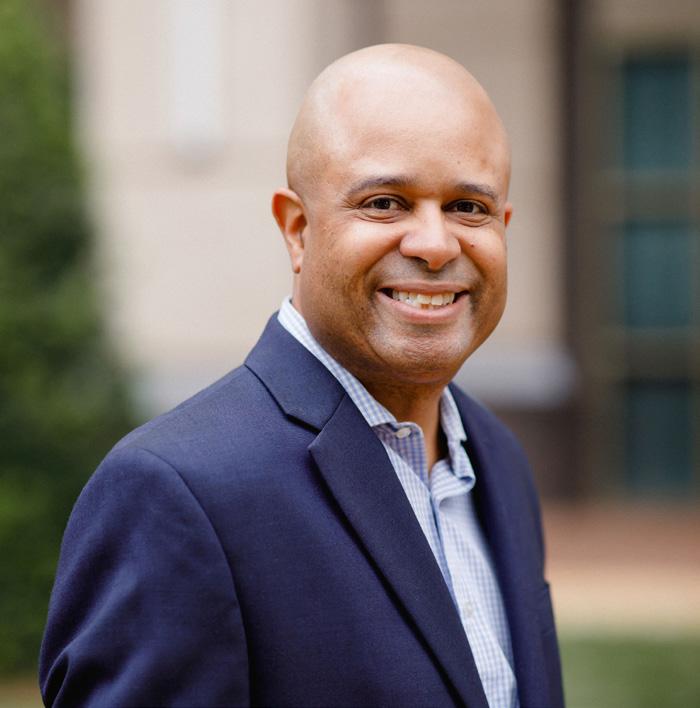
Munro Richardson
Read Charlotte Executive Director
We’re excited to share highlights of our work throughout 2024, here and in the pages ahead. We are always inspired by our community’s ability to come together, and this year was no exception. It’s one of the reasons we believe now more than ever that change is within our reach.
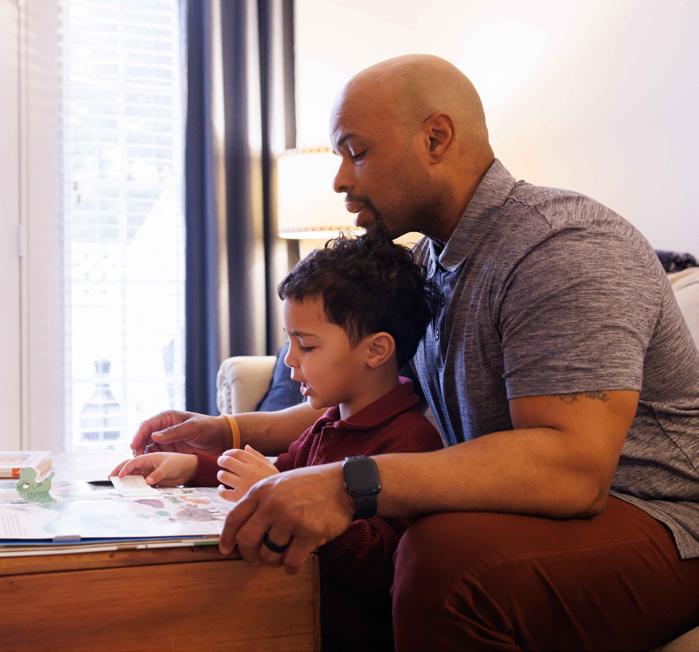
We reached thousands of local families with our Read Together campaign. We continued to spread the important message that reading together is a powerful way to build children’s literacy skills. Read more about this initiative, and the community collaboration behind it, on pages 7-8.
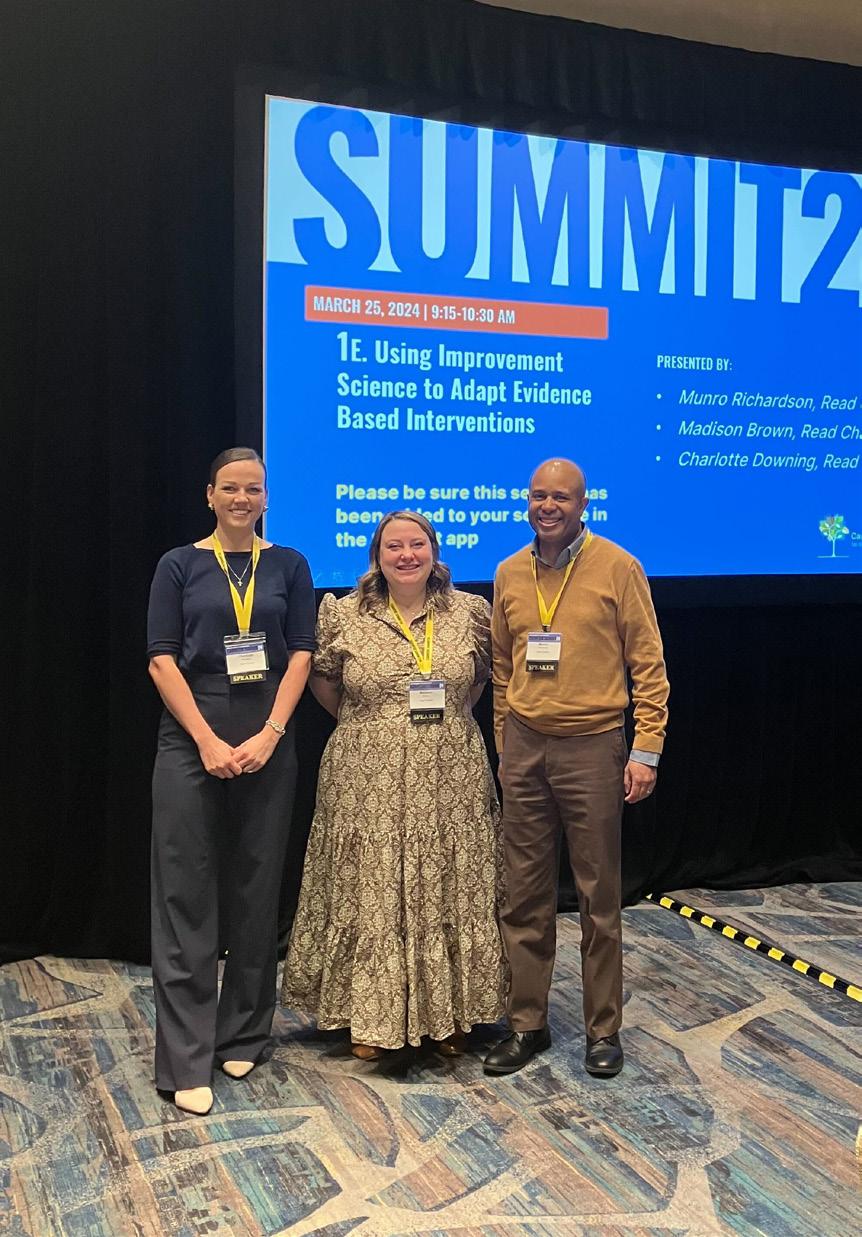
Listening comprehension is a critical yet often overlooked literacy skill. Closing this research-to-practice gap is a major focus of our work. One of our most exciting projects in 2024 was developing the Listening Comprehension Resource Center. This first-of-its-kind website features curated listening comprehension resources for educators. Read more about this new tool, and the latest research around listening comprehension, on pages 9-10.
Read Charlotte team members presented at Carnegie Foundation’s 2024 Summit on Improvement in Education, which is a conference our team has attended annually. The presentation, “Using Improvement Science to Adapt Evidence-Based Interventions”, focused on the use of improvement science principles to develop our Queen City ReadersTM tutoring curriculum. Presenting was truly a full-circle moment for our team!
We continued to deepen our partnership with Pineville Elementary School throughout 2024. We worked with the school on a range of literacy-related events, pilots, and programs, including family nights with programming and resources like read alouds and book swaps, the pilot of an AIpowered reading tutor, and a third year of use of a volunteerled kindergarten tutoring curriculum. Read more about this exciting work on pages 13-14.
Our Commit To 80 event is something we look forward to each year, and 2024’s did not disappoint! It was full of inspiring messages, and, as always, was a wonderful opportunity to recognize the work happening across our community to improve early literacy. See pages 15-16 for photos and more details.
The Summer Literacy Infusion (SLI) initiative adds one hour of literacy a day to summer camp programs to combat summer learning loss. Read Charlotte partnered with the YMCA of Greater Charlotte to bring the model from Philadelphia to Mecklenburg County in summer 2017. The YMCA has managed and overseen its growth. The YMCA uses SLI in its summer camps and supports its implementation in other organizations’ programs. In summer 2024, 31 agencies participated at 32 different sites, and 97% of campers maintained or improved their reading skills. Over 10,000 campers have been served since the beginning of this partnership.
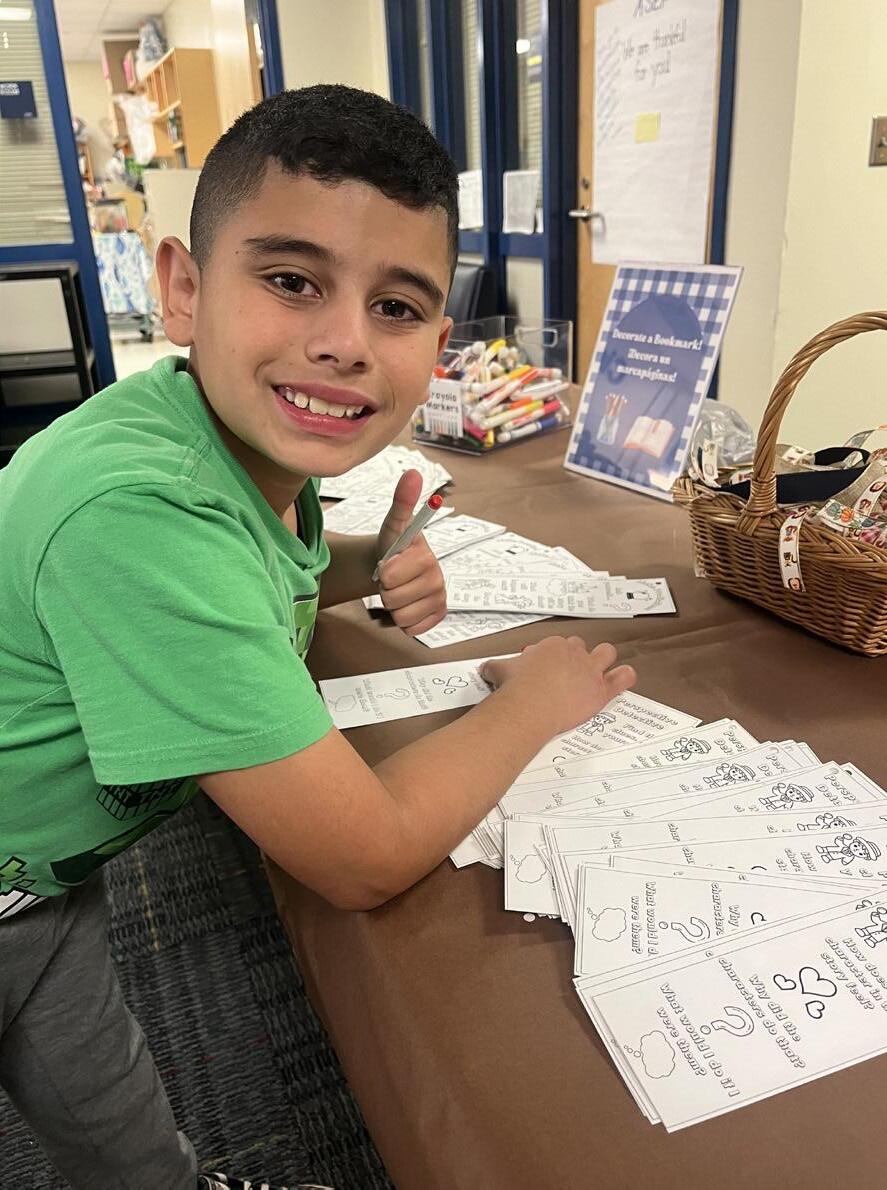

Scan here to watch our year-end video, wrapping up 2024!
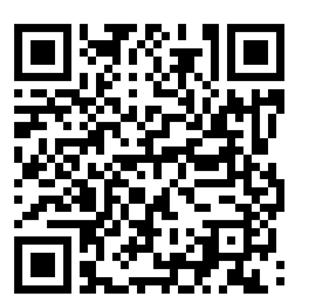
Read Charlotte’s work is grounded in the latest reading science, with the aim of strengthening our local system of support for children and aligning efforts in the classroom, community, and home to improve early literacy. Our work focuses on both word reading and listening comprehension skills, as research shows these are two primary processes that support reading comprehension.
Our focus areas of work are also anchored on supporting the Charlotte-Mecklenburg Schools’ literacy goals that were adopted in 2024. The CMS school board approved five-year (2024-2029) academic goals based upon community input. Two of the four goals pertain to literacy, which the community named the top priorities for elementary and middle school.
Percent of kindergarten through second grade students scoring at or above benchmark in early literacy as measured by DIBELS will increase from 67% in June 2023 to 91% by June 2029.
Percent of students scoring College and Career Ready on reading End of Grade (EOG) assessments in grades 3-8 will increase from 31% in 2023 to 50% by June 2029.
Goal One involves word-reading skills, and Goal Two involves comprehension, vocabulary, and background knowledge. To develop the high-level reading comprehension skills required to be College and Career Ready by the end of third grade, students need to develop word-reading, comprehension (oral and written text), and background knowledge simultaneously. We also need to pay close attention to the specific needs of our growing population of multilingual learners who are learning these skills in multiple languages at the same time.

Read Charlotte focused its work in 2024 to support these goals, primarily in four areas that we see as critical leverage points:
We’re working with partners to increase the number of children who regularly experience shared reading with an adult, as that’s a proven strategy to build children’s language, vocabulary, and comprehension skills. Our public-facing Read Together campaign is a major component of this work, as is continued work with partners to foster collaboration in this area. Read more on pages 7-8.
One of our priorities is to help CMS increase the number of children who finish kindergarten on level for word-reading skills. A key project to support this is Queen City ReadersTM, a tutoring curriculum that can be used by volunteers to tutor kindergarteners in word-reading skills. Read more on pages 11-12.
In this focus area, our goal is to help increase the level and quality of efforts focused on building children's listening comprehension skills, as those skills are an early predictor of reading comprehension. Our work in this area includes the Listening Comprehension Resource Center, an in-development website to help educators and practitioners with assessment and instruction, and the Community Read-Aloud Model, a researchbased, user-friendly interactive read-aloud model that community-based organizations can use to support targeted listening comprehension skills. Read more on pages 9-10.
We want to help our community build strong models of school-community partnerships that improve early literacy outcomes and can be replicated and scaled across the community. We’ve worked closely with Pineville Elementary School over the past year on a variety of events, pilots, and programs. We’re excited to continue to build our partnership there and to partner with other groups to support other schools in the year ahead. Read more on pages 13-14.
Our Read Together initiative is built around the simple yet powerful practice of an adult and a child reading together, which is a proven strategy to build children’s language, vocabulary, and comprehension skills.
The initiative is a collaborative effort to have more children in Mecklenburg County experience reading together, through both a family-focused marketing campaign and community partners’ direct work with families. Read Together is a key component of our work, and an important element in helping all children become strong readers.


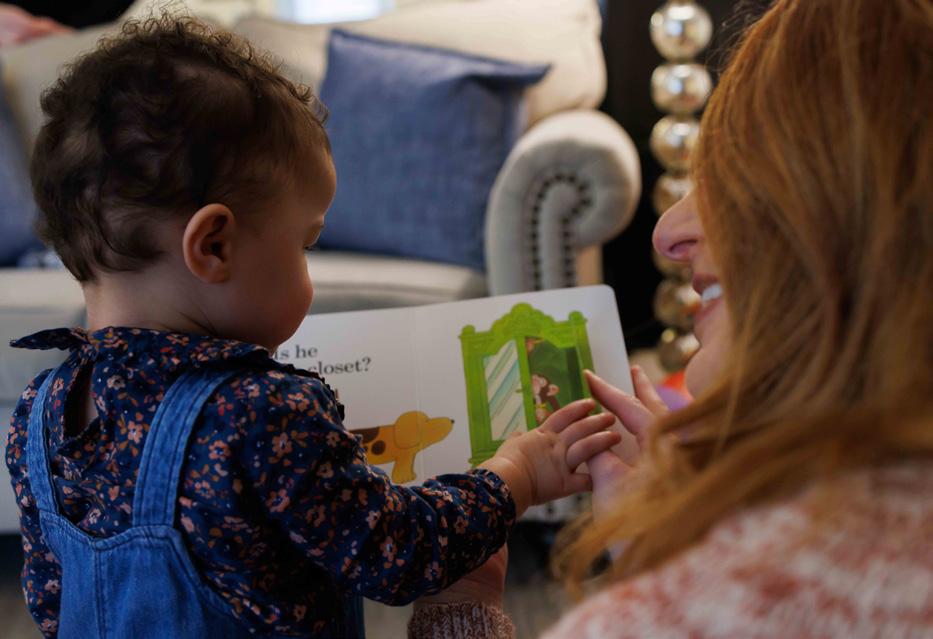
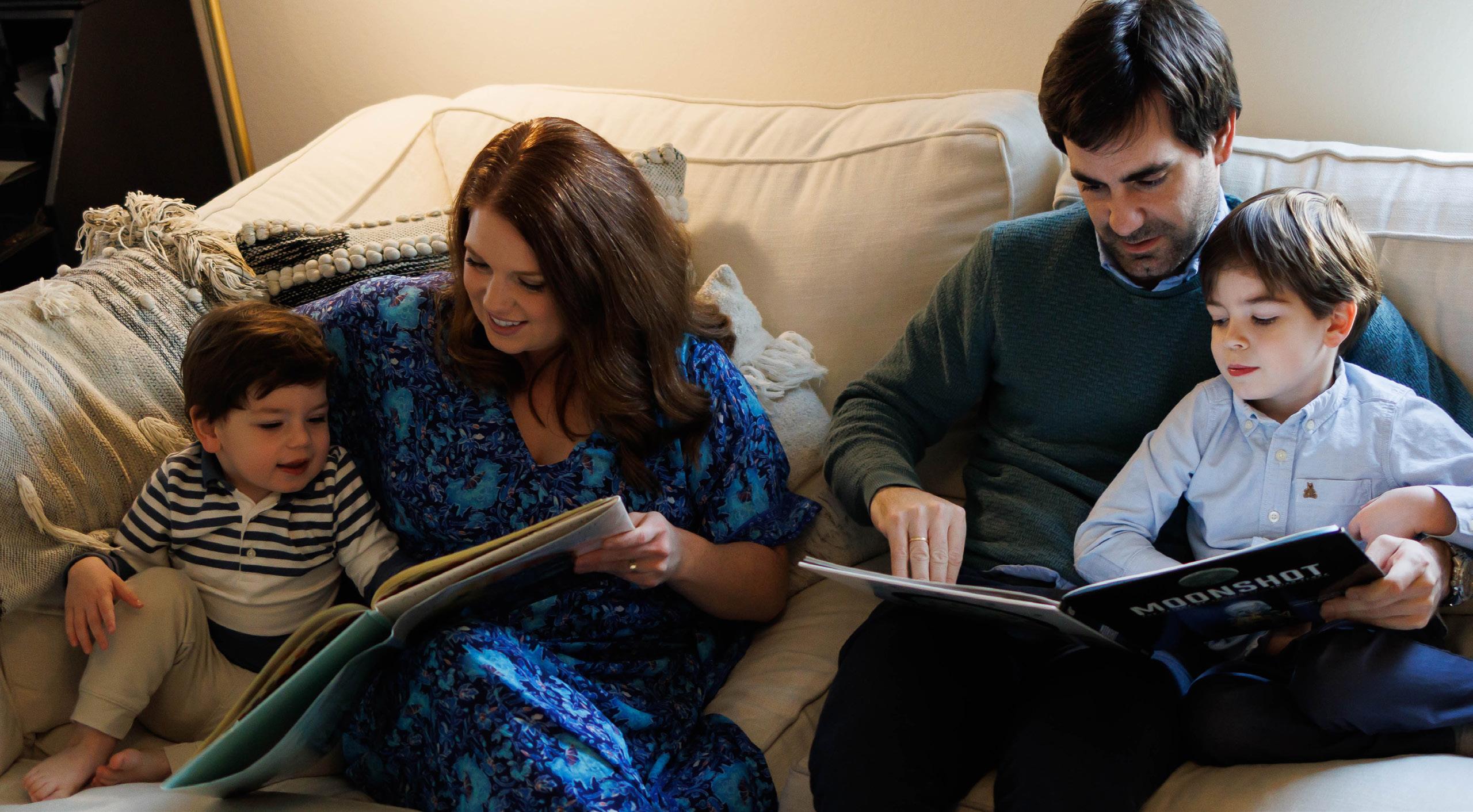
Our Read Together marketing campaign has reached thousands of local families since its launch in summer 2023, and continues to generate high engagement and enthusiasm. It’s one of our most successful marketing campaigns to date, and we’re excited to see its continued growth.
UNIQUE WEBSITE VISITORS
SOCIAL MEDIA IMPRESSIONS
BILLBOARD IMPRESSIONS
Reading together can be done in a variety of ways; anywhere, at any time. The Read Together campaign highlights this with stories from real Charlotte families, featuring their reading routines, favorite moments, and what makes the practice meaningful to them. These features are a special element of this campaign, and one we look forward to continuing.
SOCIAL MEDIA POST ACTIONS
Scan here to meet our featured families! 97,924 18,062,442 2,029,414 225,000,000 1,785,883
VIDEO VIEWS
“I think that our daughter feels loved when we read for her. At her age, she’s not asking much. She’s asking for our time, and our undivided attention. And I think reading for her, as much as playing with her – that’s love for her. That’s her love language. Those little things that we’re giving to her, the time, the reading together, I think that’s irreplaceable.”
Monica Kweman Charlotte parent
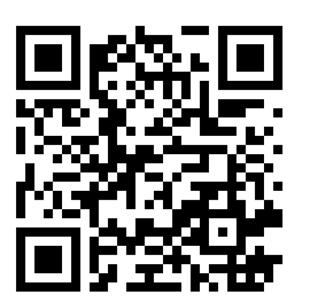
The Read Together initiative has been a collaborative effort since its launch, with community partners joining forces to raise awareness, create resources, and help to identify and remove possible barriers around shared reading. We hold Read Together meetings quarterly to continue to foster collaboration around the practice, and around partners’ direct work with children and families.

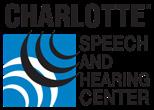



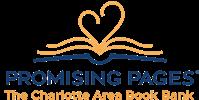


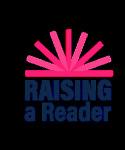



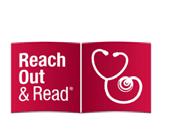
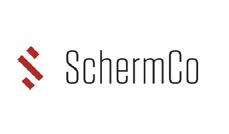



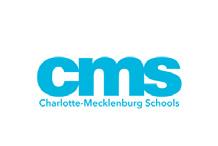





Our work around listening comprehension, or the ability to understand oral text, has continued to deepen, as it plays a critical role in reading comprehension. Recent research has shown how vital it is, with findings including:
Pre-K students’ oral language skills strongly predict later reading comprehension through listening comprehension. In fact, low language skills at Pre-K are a better predictor of later reading comprehension difficulties than low letter knowledge.
As early as second grade, as children develop automatic word-reading skills, listening comprehension becomes the greatest predictor of reading comprehension.
These and other findings led to our current focus on listening comprehension. We worked throughout 2024 to translate the latest research into resources our partners can use to put this important knowledge into practice locally, and we will continue to work to close the research-topractice gap in the year ahead.
Both word reading and listening comprehension are made up of multiple component skills that interact and support each other. Lower-level skills make an impact on reading comprehension through higher-level skills.
The connection between word reading and listening comprehension is the relationship between knowledge of parts of words (morphological awareness) and vocabulary.
Word Reading
Higher-Level Skill
Text Reading Fluency
Lower-Level Skills
Phonological Awareness
Letter Knowledge
Letter-Sound Correspondence
Phonics
Decoding
Morphological Awareness
Listening Comprehension
Higher-Level Skills Inference
Perspective Taking Reasoning
Comprehension-Monitoring
Text Structure
Lower-Level Skills
Grammar/Syntax
Vocabulary
After 18 months of planning and development, in late 2024 we began to test the beta version of our online Listening Comprehension Resource Center (LCRC).
The first-of-its-kind website includes roughly 200 PreK-12 listening comprehension resources for educators to use in classroom settings. Faculty at UNC Charlotte’s Mebane Early Literacy Center provided helpful advice and review in the development process.
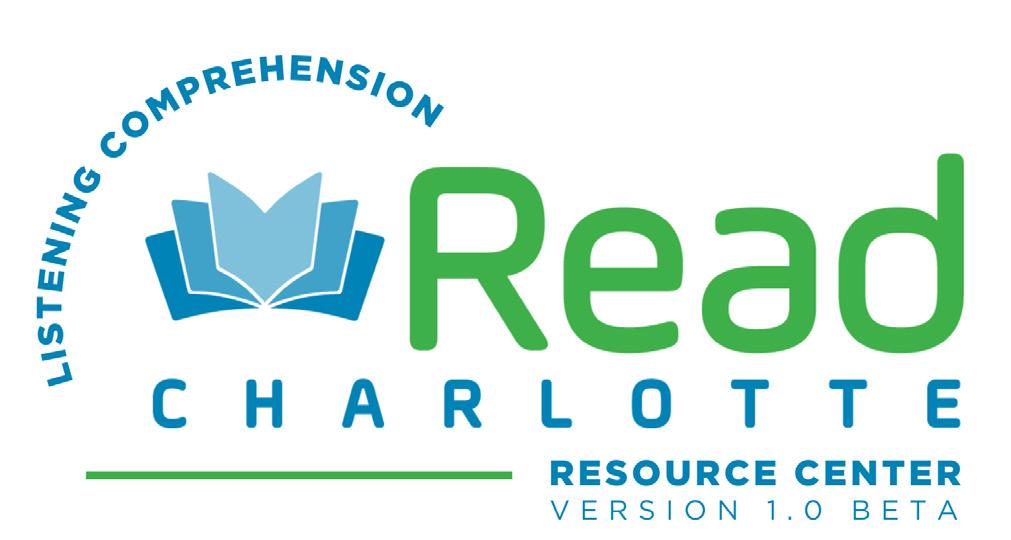
The LCRC is intended to fill an important gap for educators, namely the lack of a comprehensive resource that helps them focus on this critical literacy skill. In fall 2024, we began initial beta testing with MECK Pre-K educators. We plan to follow that with additional testing and then a wider launch in 2025.
The Community Read-Aloud Model, developed by our team in 2024, was designed to empower more communitybased organizations to provide high-quality read-alouds in their programs, as the practice is one the most powerful strategies to help children build comprehension skills. The CRA Model uses a researchbased, interactive read-aloud structure to help build three powerful listening comprehension skills: vocabulary, inference, and perspective taking. It was modeled after Queen City ReadersTM, our wordreading curriculum, in that it requires limited training of staff and volunteers, and is flexible enough to work within existing programs. We’re piloting the model with five organizations in early 2025.
To raise reading scores, we need to work on both word-reading and listening comprehension skills. There’s an existing focus on assessment of various K-3 word-reading skills, but less so on assessment of listening comprehension. To work toward solving this problem, we began piloting targeted assessment of this literacy skill in 2024.
We partnered with Charlotte Speech and Hearing Center to pilot use of the LanguageScreen assessment, which is designed to evaluate students’ vocabulary, grammar, and listening comprehension skills, with 4-year-olds in Pre-K classrooms. With Read Charlotte’s financial support, Charlotte Speech and Hearing Center is assessing 164 students in the 2024-25 school year. This work includes a partnership with MECK Pre-K to assess 144 students in their classrooms.
We also worked with Freedom School Partners to add a listening comprehension assessment to their regular reading assessment.
We hope to help more partners incorporate this type of listening-comprehension-focused assessment into their programs in 2025.

Kindergarten is a critical year for early literacy. Harvard professor Jimmy Kim’s analysis of CMS students from kindergarten in fall 2015 to third grade in spring 2019 found that the entire size of the third grade achievement gap in reading, whether by race or income, was present by the end of kindergarten. We found this research compelling enough to include kindergarten success as one of our four main focus areas of work, with the goal of helping increase the number of children who finish kindergarten on level for word-reading skills.
In spring 2024, there was a 22 percentage point gap between Black and Hispanic kindergarteners (66%) and White and Asian kindergarteners (88%) on grade level for word-reading skills. Just 1,500 more Black and Hispanic kindergarteners on-level would have completely closed this racial achievement gap. We believe this is possible with the combined efforts of CMS classroom instruction and additional community support.
Our community’s use of Queen City ReadersTM (QCR), a kindergarten tutoring curriculum that helps build basic word reading skills, has continued to expand since it was developed by Read Charlotte in 2023. Seven communitybased organizations are using QCR in the 202425 school year, along with Pineville Elementary School, which is using it for the third consecutive academic year.
The early period of word reading development that takes place in kindergarten provides an important opportunity for intervention with students who are falling behind. As students get older, their areas of need might compound and become more difficult to address. In other words, intervening early provides a significant opportunity to relieve pressure on our system in the later years. QCR was developed to help our community make the most of that opportunity. The curriculum was designed to be turnkey, so that community groups can use it
independently, and to have the potential for great reach, so that scale among community groups is possible. It can be delivered by adults with no formal background in literacy or education, and minimal training (volunteer tutors need less than an hour of training to get started). The materials are ready-made and easily distributable, and meant to be used within a range of settings.
Throughout 2024, we’ve worked to enhance the supports and materials available to groups using QCR, successfully developing and implementing a train-the-trainer approach and asynchronous volunteer training, and also improving the materials’ packaging. We plan to continue to scale QCR throughout 2025.
Scan here to read the full story of QCR’s development!

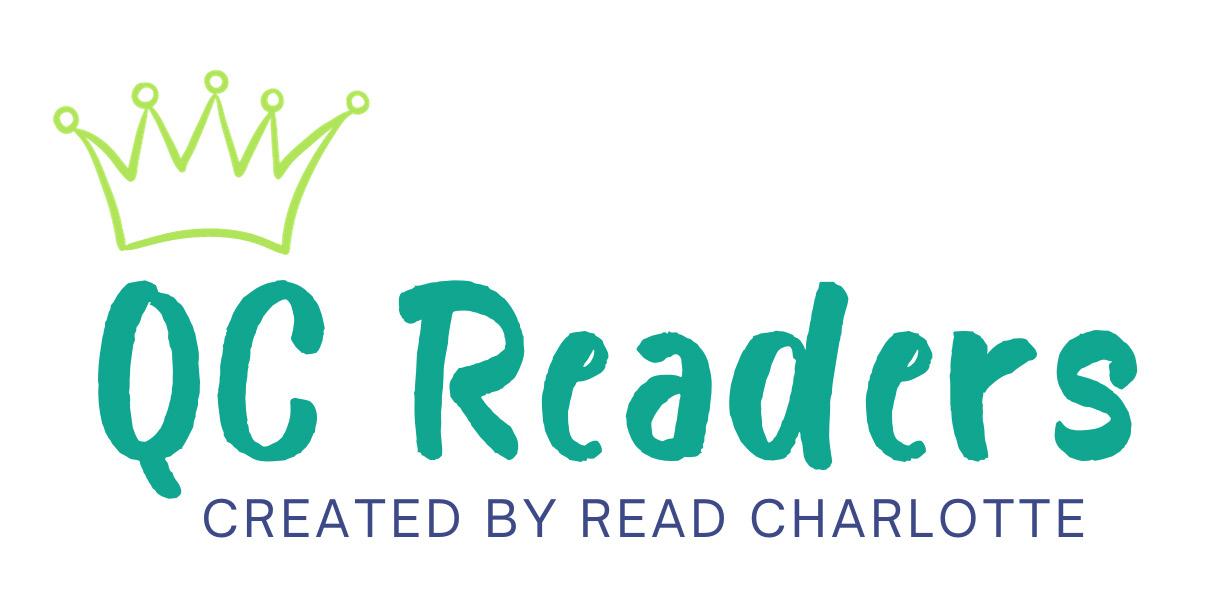
After a successful pilot of QCR in the 2023-24 school year, the staff at Ada Jenkins Center was eager to use it to serve more students, at even younger ages.
“We’re trying to catch them earlier,” said Leslie Wilson, director of education services.
The organization initially piloted QCR in the first- and second-grade classroom of its LEARN Works Afterschool Academic Enrichment Program. Wilson said they saw progress.
“We piloted with 10 students at that time, and each child made progress, from very incremental to grade levels – two grade levels in foundational reading. Because we serve students who are behind in reading, that’s a big deal to us, that progress that they made,” Wilson said. “We even had one student, a first grader, graduate out of our program because she surpassed grade-level reading. We were pretty excited about that.”

After seeing students’ progress in the first phase of the pilot, Ada Jenkins’ staff was ready to expand to serve kindergarteners. It was an exciting milestone, as it marked the first time the organization was able to serve that age group.
“It’s everything,” Wilson said. “We’re starting them earlier, kind of giving them a leg up in succeeding in their classroom, and at school. Our vision is really to foster good study habits, confidence, and self-motivation, and I think QCR contributes to us doing that, helping them. It works. We see the difference.”
Scan here to read the full blog!

Helping build strong models of school-community partnerships focused on improving school-level literacy outcomes is an important element of our work. Our goal is to work collaboratively with schools and community partners to align targeted efforts across classroom, community, and home, in ways that can be replicated and scaled across the community.
We continued to deepen our partnership with Principal Bobby French and the educators at Pineville Elementary School throughout 2024. We worked closely with the school on a range of literacy-related events, pilots, and programs. We’re excited to continue our partnership in 2025. We hope to partner with other groups to support other schools in the year ahead.
In fall 2024, Pineville Elementary School began using Amira, an AI-powered digital reading assistant, after Read Charlotte made a grant to cover the cost of the tool. Amira supports students in their word reading skills, listening to them read and providing personalized support. It can support students in both English and Spanish.
We’re also working with two community groups, BCDI-Carolinas and the YWCA Central Carolinas, to pilot Amira, with about 1,000 students in all using the tool in Charlotte-Mecklenburg.
We’re partnering with Pineville’s staff and the Charlotte Mecklenburg Library to assist with the school’s family nights during the 2024-25 school year, with the goals of equipping families with information and resources to support students’ reading development at home, highlighting the importance of reading together, and supporting listening comprehension. The events so far have included programming and resources like read alouds, book swaps, and bookmarks with helpful reading tips for families. Our partners at both Promising Pages and Scholastic have supplied books for families to take home. Promising Pages is also working to place Reading Resource Centers in multifamily apartment complexes where Pineville Elementary families live.
We’re looking forward to additional events in the spring, and hope to use our learnings from this event series to create an arc of literacy-focused family nights that could be easily replicated at other schools.
The 2024-25 school year marks the third consecutive academic year that Pineville has used Queen City ReadersTM (QCR), a turnkey kindergarten tutoring curriculum developed by Read Charlotte. QCR makes it easier for community groups to use volunteers to help students practice and reinforce basic word reading skills. Successful implementation of QCR requires minimal training of volunteers (we placed the burden on the materials).

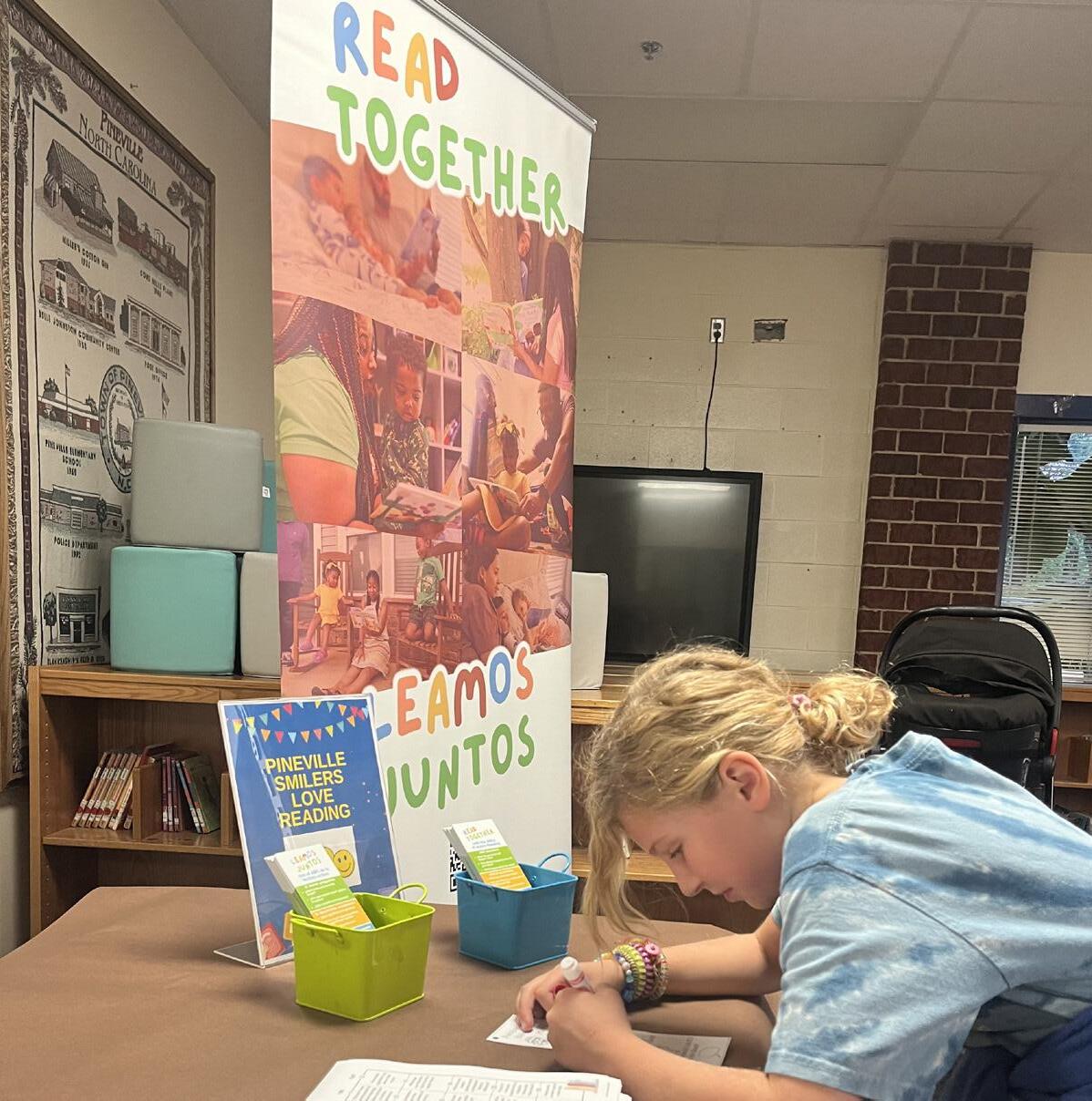
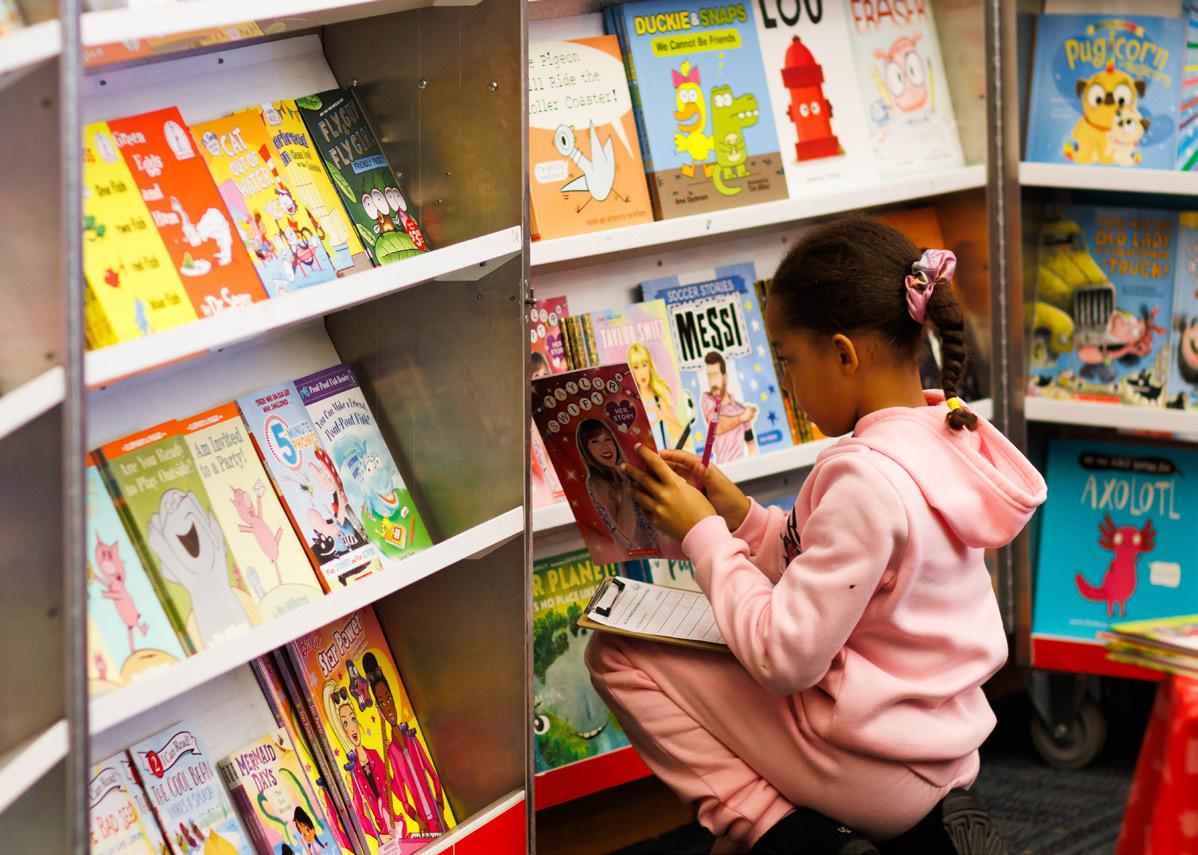
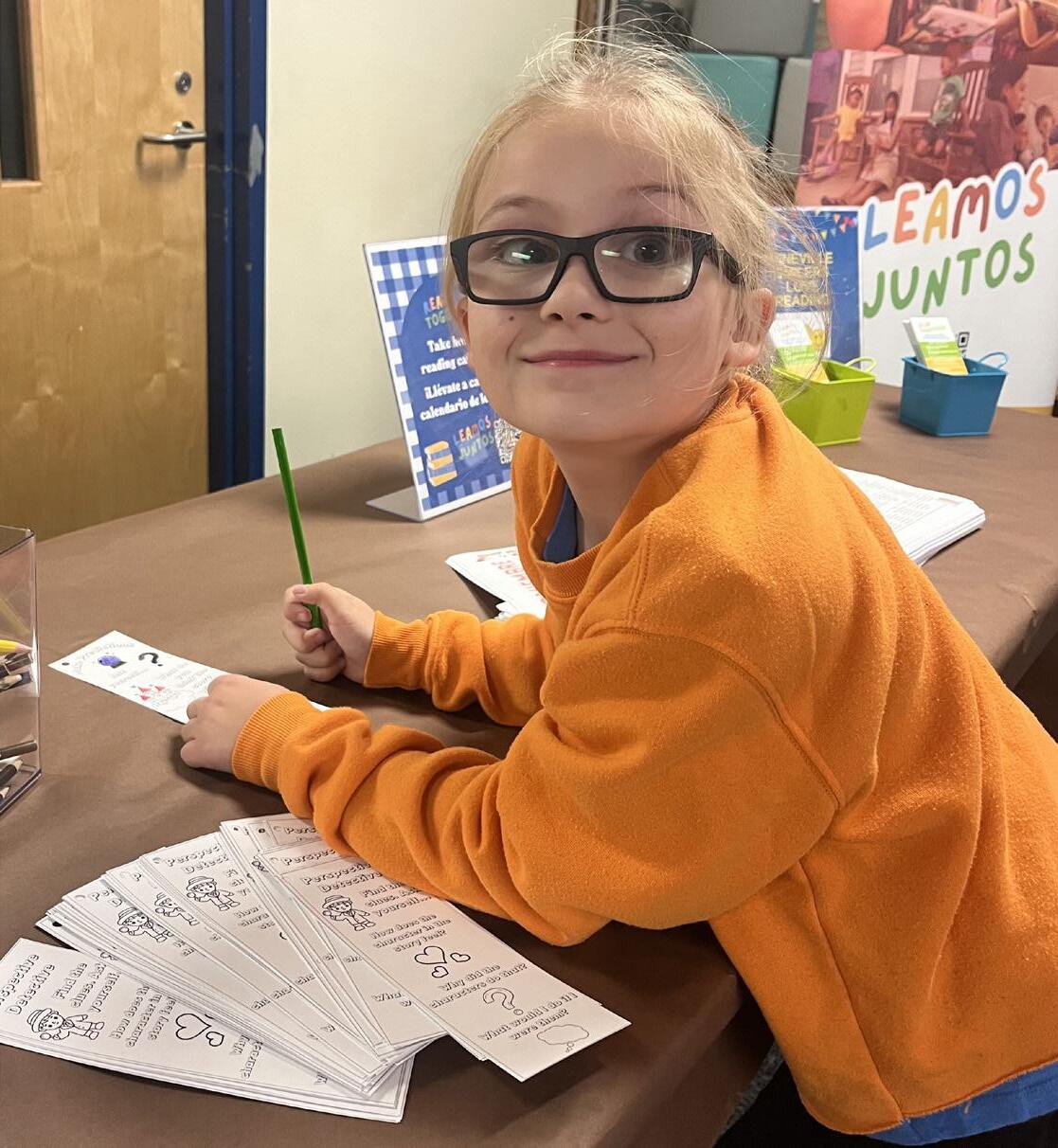
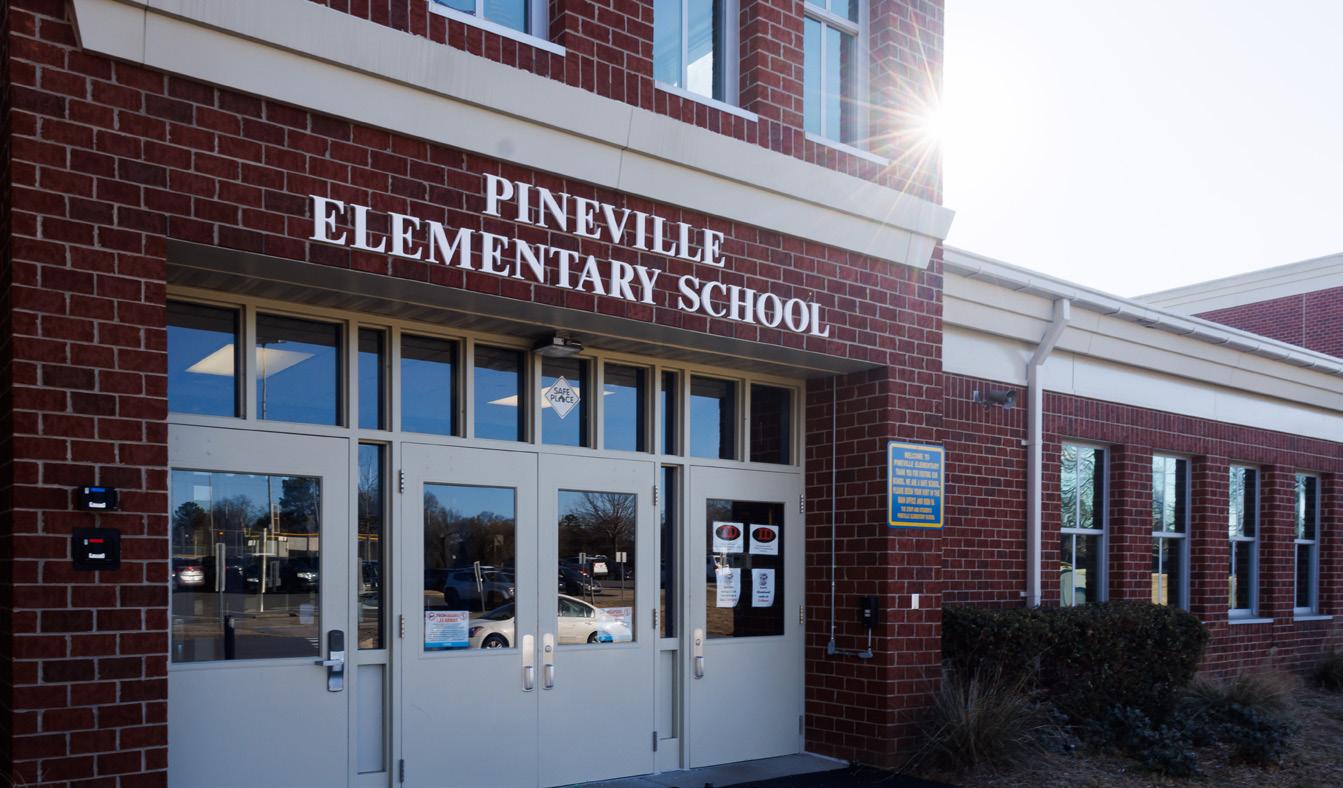
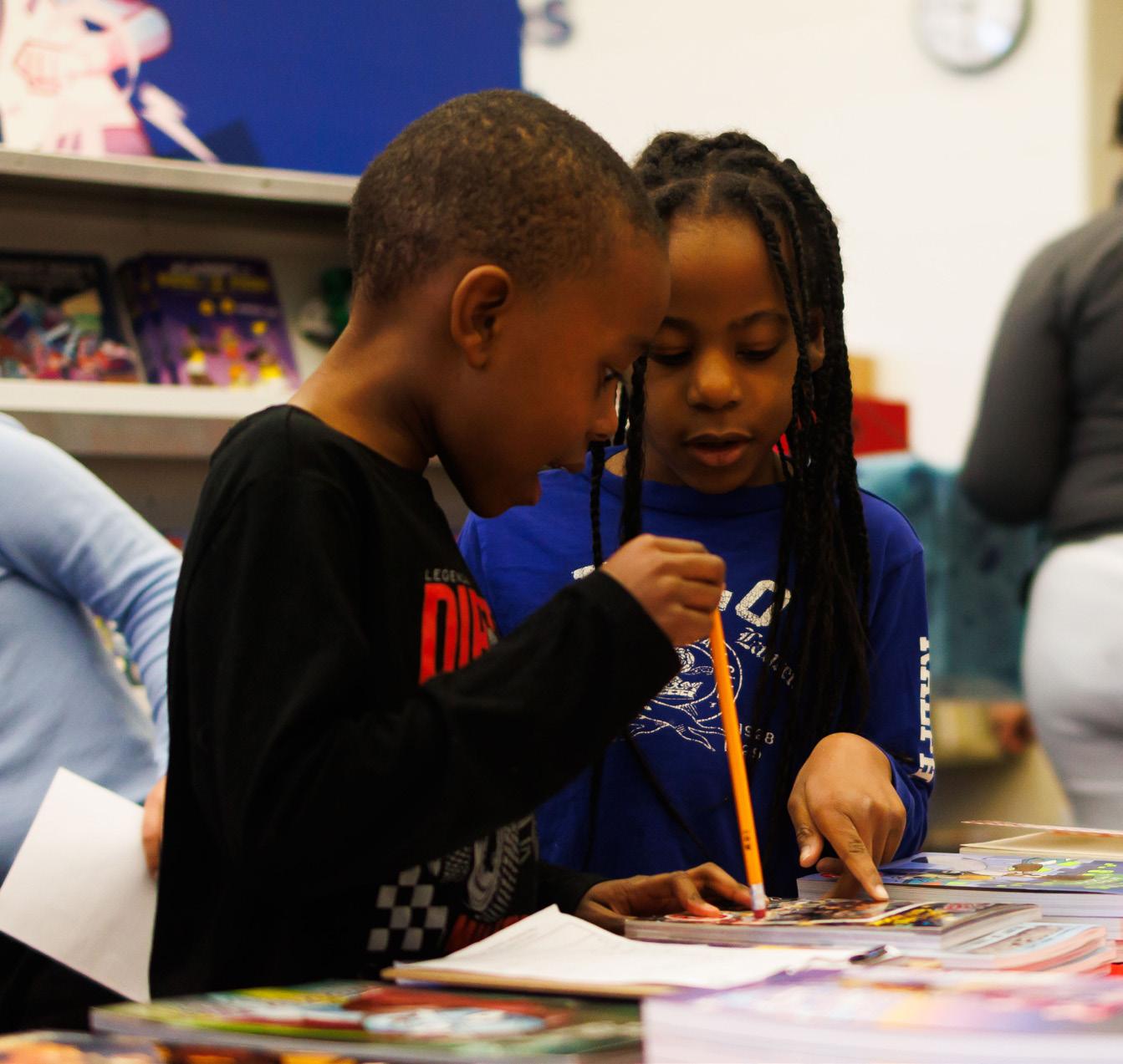
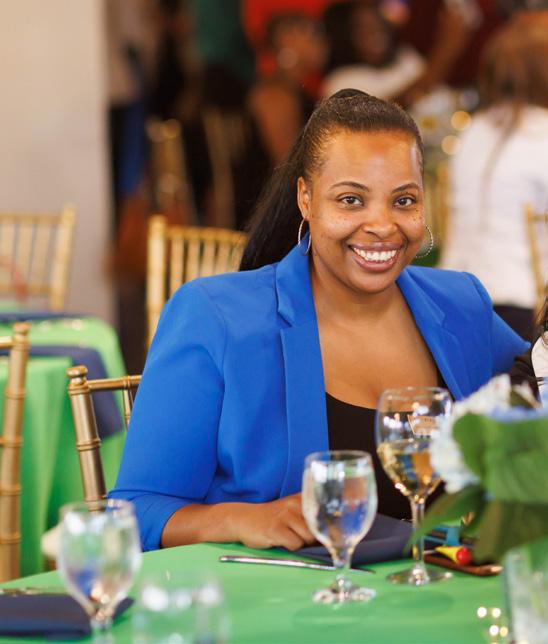

Our 2024 Commit To 80 event brought together people across Mecklenburg County working to improve early literacy, and featured inspiring messages from speakers Bobby French, principal of Pineville Elementary School, and Dr. Devonya Govan-Hunt, president of Black Child Development Institute Carolinas. The program also featured Charlotte’s first youth poet laureate, CMS senior Vanessa Hunter, and Charlotte’s first poet laureate, Jay Ward, both of whom gave powerful performances of spoken word poetry.
It was a wonderful evening, and an opportunity to recognize the amazing work happening across our community. We’re grateful to everyone who attended, and we look forward to next year’s event!

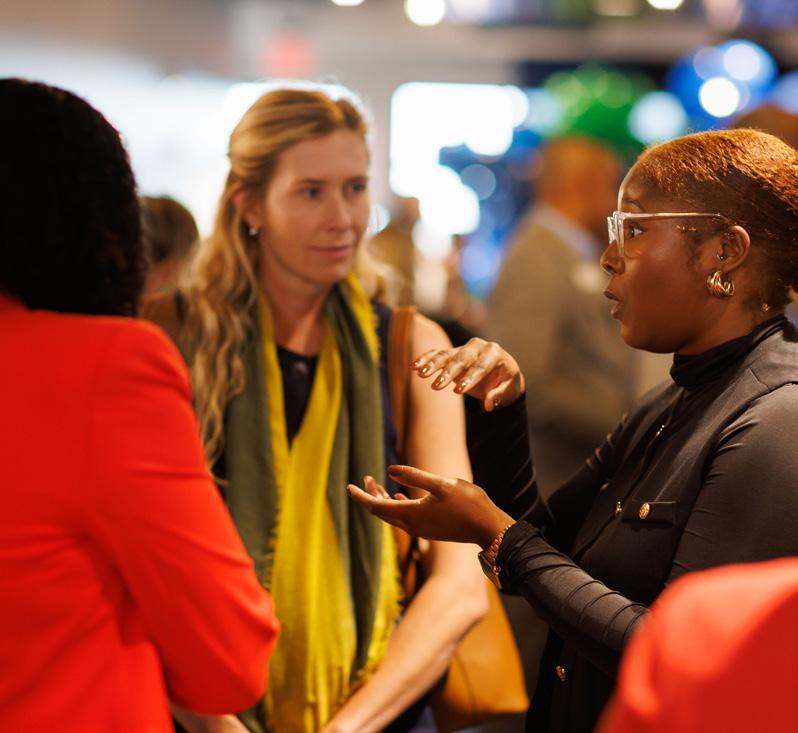
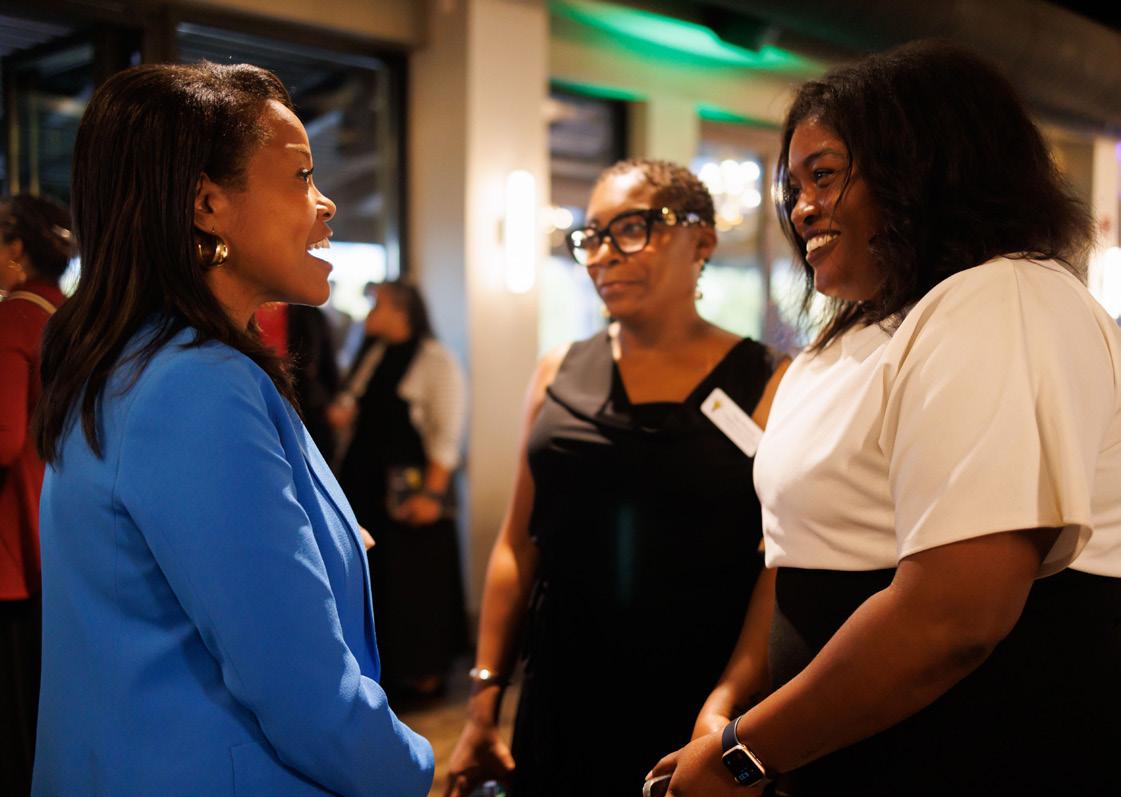


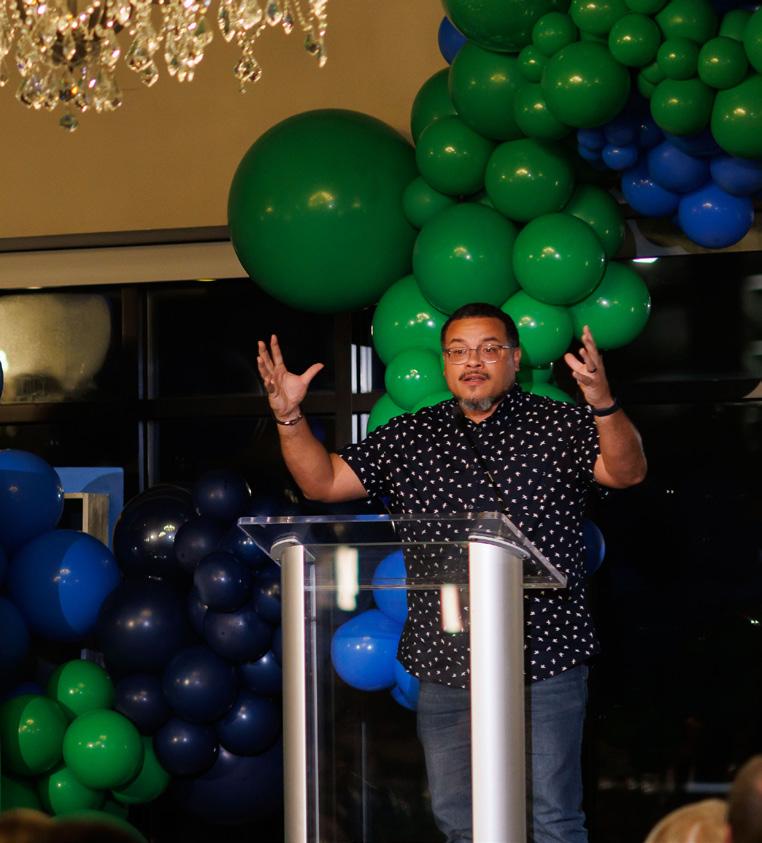


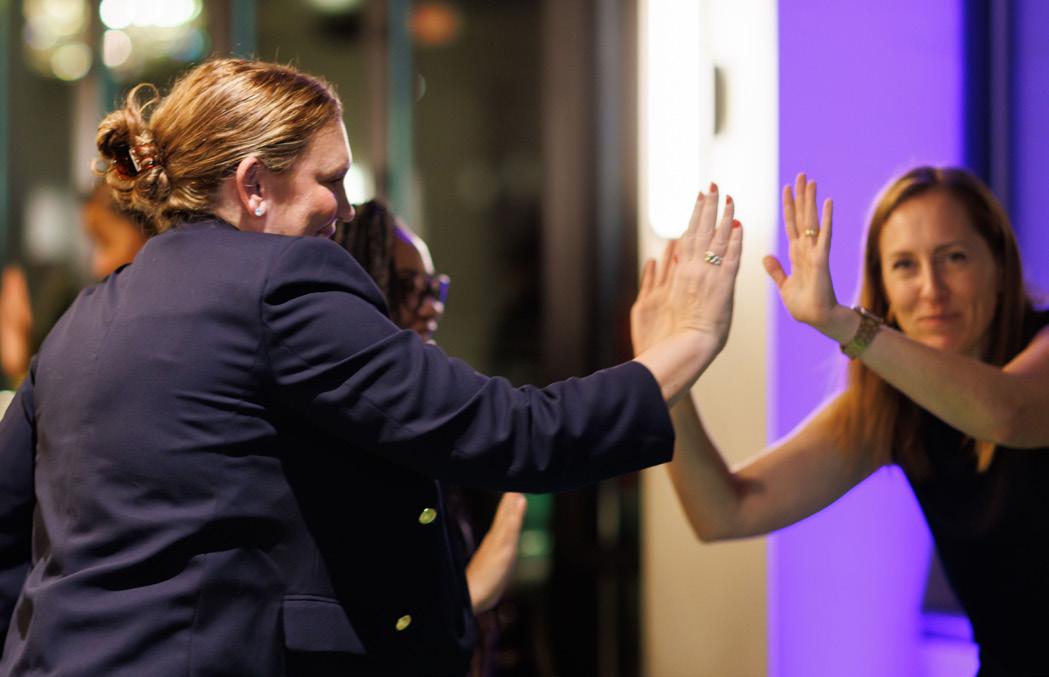
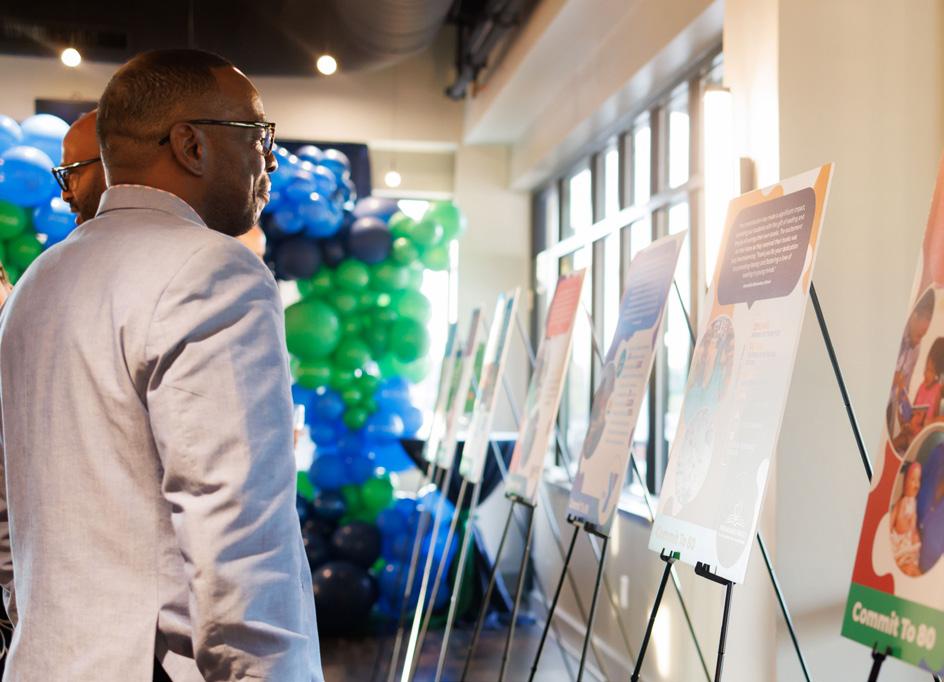
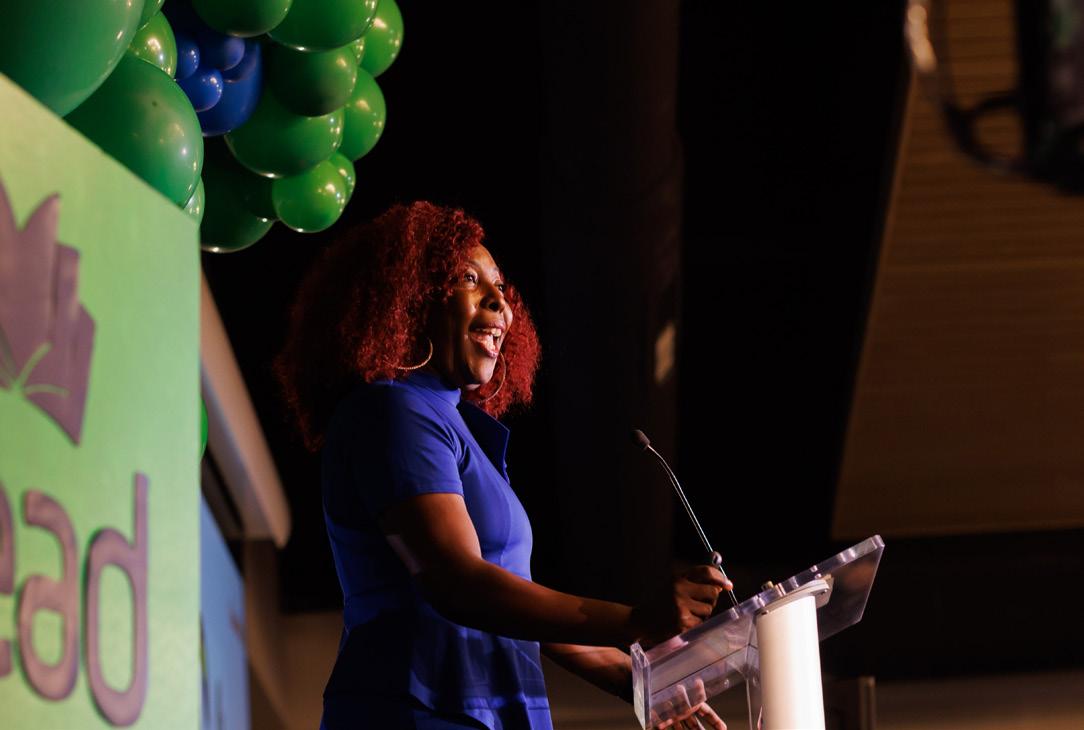


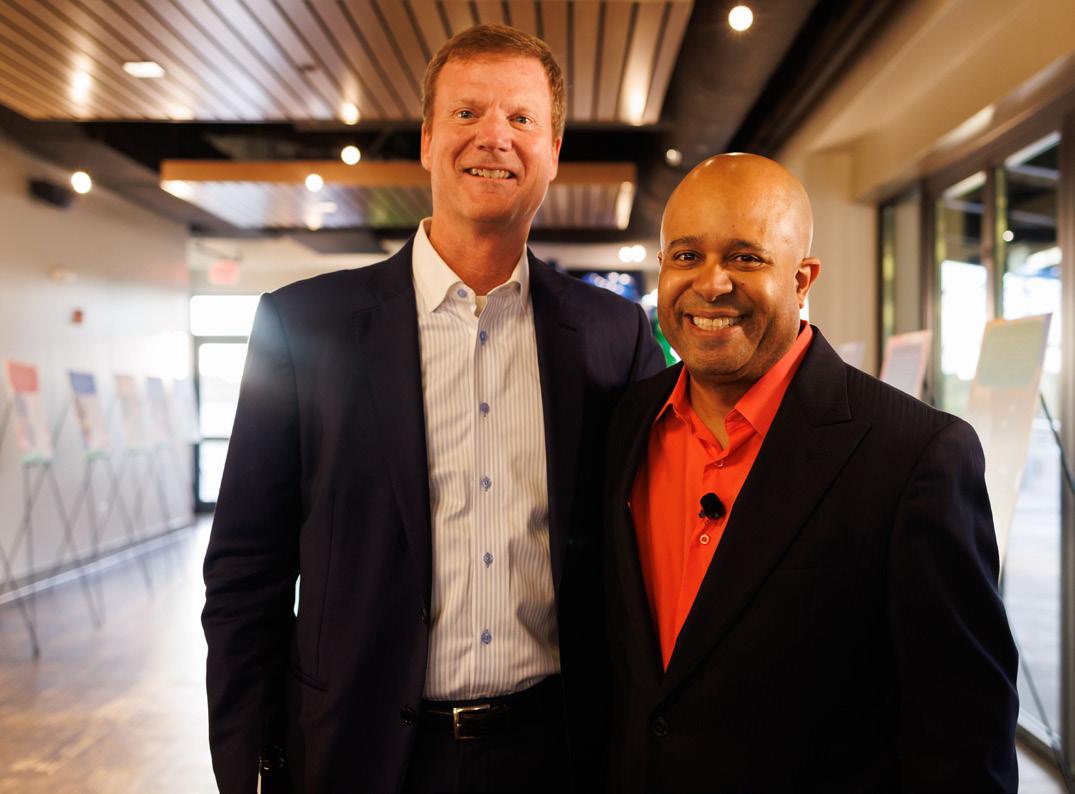

The population of Multilingual Learners, or students who speak another language in the home and are in the process of learning English, in Charlotte-Mecklenburg Schools has grown dramatically in recent years, accounting for 20.5% of the district’s students in fall 2023.
The majority of MLs are U.S. citizens and spend their whole education in U.S. schools. The Migration Policy Institute reported 85% of ML students in Pre-K through fifth grade were born in the United States, compared to 62% of MLs in sixth through twelfth. Across the U.S. in K-12 settings, percentages of MLs are concentrated in elementary (K-5.) Within elementary, percentages are typically more concentrated in K-2 than grades 3-5. This is in part due to students growing in proficiency and exiting the ML service classification.
Across the U.S., a headcount of immigrant students and ML students occurs each fall, determining federal funding. This chart shows a comparison across the United States, North Carolina, CharlotteMecklenburg Schools, and Wake County schools. In CMS, there’s been a 7% increase in the ML population, accounting for over 11,000 students in six years. This increase highlights an important opportunity for community collaboration in supporting diverse learners, and is something Read Charlotte will continue to focus on in 2025.
National percentage of K-12 public school students classified as ML, Fall 2021
fast facts (2023-24 school year)
In CMS, there are over 50,000 Language Minority students. Of those, almost 60% are classified as ML and receive some level of ML services. The district has reported that over 7,000 of those K-12 ML students are Newcomers, the large majority in kindergarten and first grade.
30,151 COUNTRIES REPRESENTED
194
158 LANGUAGES SPOKEN
Top 10 languages spoken by students
Being culturally and linguistically diverse is an asset, not a deficit to overcome, and the term multilingual is more inclusive and represents the reality that English is not always the second language for students. Many of the terms and labels have evolved over time, with some being used interchangeably. Here are just a few of the most-used key terms.
Current term
Multilingual Learner (ML/MLL)
English Language Development (ELD)
Language Minority
Native Language
Other terms you may see Description
English (Language) Learner (EL/ELL), Emerging Bilingual, Dual Language Learner (DLL), Limited English Proficient (LEP)
English as a Second Language (ESL), English to Speakers of Other Languages (ESOL)
Students in the process of acquiring/learning English
Instruction designed to develop listening, speaking, reading, and writing skills in English
Students whose home language is not the dominant language (English)
L1, First Language, Home Language First language acquired
ML encompasses a wide variety of students. Subcategories include, among others:
Newcomers
Born outside of U.S., in their first or second year in U.S. schools
Dually Identified:
•MLs with disabilities (EC) •Gifted and talented MLs (TD/AIG)
How are MLs classified?
Students with (Limited or) Interrupted Formal Schooling (SIFE) Significant interruption to schooling or never attended - difficult to classify
Refugee
Forced to flee home country often due to safety
Long-term English Learners (L-TELs)
In U.S. schools 6+ years and have not yet exited ML services
Unaccompanied
Not living with their legal parent/ guardian - often may be aunt, uncle, older sibling
Procedures vary state by state. North Carolina is a member of the WIDA consortium, a collective that researches and guides linguistic assessment and instruction for MLs in K-12 settings. In CMS, a Home Language Survey is in the student enrollment packet. Students with any language other than (or in addition to) English are classified as Language Minority. ML teachers assess English Proficiency using the WIDA Screener if students are not enrolling with previous scores. Once identified as ML, students take the ACCESS test annually to assess language growth. When a student in North Carolina reaches an ACCESS composite level of 4.5 (scale 1.0-6.0), they are considered “exited” and no longer classified ML. When students “enter” ML classification, North Carolina assigns annual proficiency goals and a projected exit year. Percentage of students meeting goals is one component in School Performance Grades.
A Read Charlotte-commissioned study by researchers at UNC Chapel Hill examined the relationship between early literacy and a range of later social outcomes. Researchers used a national dataset to find that early literacy provides protective factors across a range of social outcomes in the teens and early twenties. Improving early literacy – even controlling for individual and family differences – increases outcomes for college application, college graduation, household income, and employment. In short, getting children to reading proficiency in elementary school is a “super strategy” for increasing economic and social mobility and their chances for a happy and healthy life.
This study was underwritten by a grant from The Duke Endowment.
Compared to their peers with above average reading ability, students who have below average reading ability in Grades 3 and 4:
Are almost two times as likely to not attend college.
Are one-third more likely to report feeling depressed in their early-to-mid twenties. Are 25% more likely to report substance abuse in their early-to-mid twenties. Have 25% less household income in their early-to-mid twenties.
Are almost 50% more likely to experience unemployment in their early-to-mid twenties.
Are more than two times as likely to not apply to college.
We think the difference in above average and below average reading ability in these data loosely translates to the difference between College and Career Ready and Not Proficient on state reading tests.
Data are from the National Longitudinal Survey of Youth 1979 - it includes data from 11,545 children born between 1970 and 2006 to women in the original NLSY79 sample. Data were collected through surveys conducted every 2 years from 1996 to 2016. Literacy was measured before Kindergarten and in late elementary (3rd and 4th grade) and outcomes were measured in teens and 20s. The analysis controlled for differences in individual and family background, including sex, race, birth order, family income, books in the home, etc.
Malcolm Butler University of North Carolina – Charlotte
Laura Yates Clark Foundation For The Carolinas
Dena Diorio Mecklenburg County
Rebeca Fernandez Davidson College
Fannie Flono Community Volunteer
Crystal Hill
Charlotte-Mecklenburg Schools
Lindsay Joyner Truist
John Martin
Young Black Leadership Alliance
Dave McDonald Albemarle Foundation
Katie Morris The Belk Foundation
Anna Nelson CD Spangler Foundation
Crawford Pounds (Chair)
Ben Pysch PNC BANK
Meka Sales The Duke Endowment
Justin Steinschriber The Leon Levine Foundation
Jennifer Ward Bank of America
Stick Williams Community Volunteer
Albemarle Corporation Bank of America
The Belk Foundation
C.D. Spangler Foundation
$1M and over
The Duke Endowment Foundation For The Carolinas
The Leon Levine Foundation
Mecklenburg County
$500,000 to $999,999
Duke Energy
John S. & James L. Knight Foundation
Ann Dunlap Hendrix Fund
Crane Family Foundation
Hal and Holly Levinson Family Fund
Alpha & Omega Foundation
Aaron Jeter
Adam Claugus
Alexis Gordon
Allen Tate Company, Inc.
Allison Tack
Alyssa Franklin
Amanda Beacham
Amanda R. Webb
American Endowment
Foundation
PNC Bank PwC
Skeebo Foundation Truist Bank Vanguard Wells Fargo
$100,000 to $499,999
Hopestar Foundation
James Family Foundation
Morton Family Fund
$50,000 - $99,999
Elevation Church
Up to $50,000
Amy Strecker
Andrea Barkely
Andrew Pickering
Anne Marie Dubois
Annette Korbin
Anonymous
Ashley Hardy
Atrium Health
Barnhill Family Foundation
Barry A. Teague
Stephen L. Cornwell Foundation
The Tepper Foundation
Z. Smith Reynolds Foundation
Springsteen Foundation
Benjamin Wilhelm
BlackArch Partners LP
Brian A. Bragg
Brian T. Elliott
Brighthouse Financial
Brittany L. Schussler
Carol C. Hallquist
Carolina Panthers Charities
Caroline Starnes
Carolyn Kuruvilla
Carrie Reinhardt
Charles Butt Foundation
Charles and Mary Bowman
Charlotte Ballet
Charlotte Chamber of Commerce
Charlotte Hornets Foundation, Inc.
Children’s Medical Endowment Fund
Christina Flansburg
Christine Nicodemus
Clair K. and John A. Tate
Coaching For Literacy
Community Eye Care
Cynthia G. Tice
Danville Regional Foundation
Davidson College
Dawn M. DeRose
Deborah D. Steele
Dottie Martin Children’s Endowment Fund
Ellen Rosenfeld
Emily Rassam
Erica Brown
Ferris Morrison
First Presbyterian Church Charlotte
Glenda Kilgore
Global Endowment Management
Gwen M. Poth
Henry W. Sale
Hoff Faithful Giving Fund
Katherine O. Bagby
Kathleen W. Shaw
Kathylee B. Thompson
Kellie McKinney
Kevin Kendrick
Kevin Salazar
Kissel Family Foundation
Kristina Denta
Laura Burkart
Lee Ann Steadman
Lisa Barnaby
Margaret C. Sockwell
McFarland Construction
Mecklenburg Optimist Club #42325
Melanie June
Melba W. Daniels
MetaMetrics Inc.
Michael Daley
Michael and Margaret Greska
Nancy Harris
Nicole Papadopulos
North Inlet Advisors, LLC
Out of Print
Page & George Bradham
Family Foundation
Parsec Financial
Peter Bowman
Planters Punch Garden Club
Queen’s Grant Community School
PTI & Students
St. Nektarios Endowment
StudeoCo
Summit Seltzer Company LLC
Suzanne V. Spain
Tamara Holt
Terri Rehkop
The George K. Baum
Family Foundation
The Hobbs Foundation
The Katherine & Thomas M. Belk Foundation, Inc.
Theresia Moser
The Stanley Family Charitable Fund
Thomas E. & Rosemary I. Rogers Endowment Fund
Timothy Kay
Trinisha Dean
UNCC Chapter of Phi Kappa Phi
Virginia T. Shaw
Virginia W. Tarleton
WBTV
WestEnd Advisors
Weston M. and Margaret W. Andress
Whitney & Mitchell Feld Family Fund
Whitney D. Arnall
William A. McEachern
William D. Funderburg
WP Pizza Bar - Charlotte
Yanliang Dong
Zimmer Biomet Foundation Up to $50,000 continued
Hoffman Lewis
Holly Eskridge
Howard G. Solender
Hugh L. and Jane S. McColl
Impact Endowment Fund
Jacqueline Parker
James H. Nichols
James Klein
Jane E. Pounds
Jenkins B. Trotter
Jill Korbin
Jim H. Thompson
John F. Cassady
Joseph A. Connor
Ramdas Narayanan
Rhett Mabry
Richard L. and Saundra H. Magee
Richard T. Williams
Ronald L. Fisher
Russell Zabel
Ruth Beardsley
Sally C. Saussy
Selwyn Avenue
Presbyterian Church
Shelves Bookstore
Spindle Bar, LLC
Stephen Screen
Steve and Lorre Potash
Family Foundation